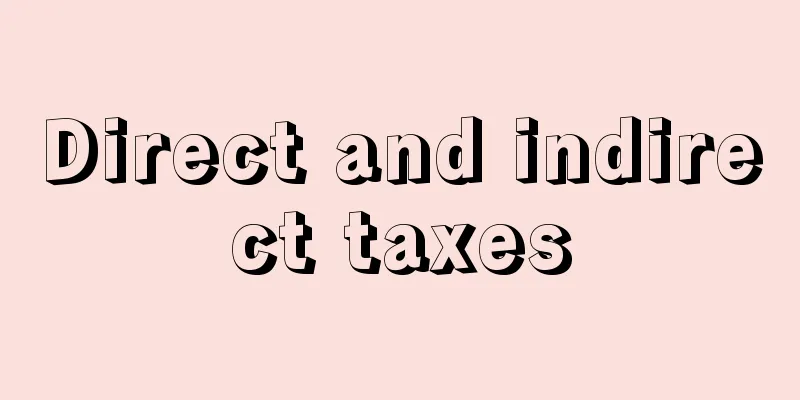Direct and indirect taxes

|
There are various criteria for distinguishing between direct and indirect taxes, but the most common is whether or not there is pass-through (see the section on tax theory). A direct tax is a tax that is ultimately borne by the legal taxpayer, while an indirect tax is a tax that is paid directly by a specific legal taxpayer for convenience, but ultimately the burden is passed on to other entities in society, and it can be assumed that these entities are the true taxpayers. The main direct taxes are national income tax, corporate tax, and inheritance tax, and local resident tax, property tax, and business tax. Source: Heibonsha World Encyclopedia, 2nd Edition Information |
|
直接税と間接税を区別する基準はいろいろあるが,転嫁(〈租税理論〉の項参照)の有無を用いるのが一般的である。直接税は,法律上の納税者が究極的にもその税を負担すると考えられる税であり,間接税は,納税上の便宜性のゆえに,ある特定の法律上の納税者に直接的には税を支払わせるが,究極的には社会の他の主体に負担が転嫁されて,それらの主体が真の納税者であると想定できる税である。おもな直接税としては,国税に所得税,法人税,相続税があり,地方税に住民税,固定資産税,事業税などがある。
出典 株式会社平凡社世界大百科事典 第2版について 情報 |
<<: Direct billing - direct billing
>>: Direct finance, indirect finance
Recommend
Master of the Ballet (English spelling)
...There are many conventions, such as pointing w...
Alkman - Alkman (English spelling)
Date of birth and death unknown. Greek lyric poet...
Station (station) - station
...a transportation and communication system in w...
Shinkage-ryu
It is one of the main styles of swordsmanship in ...
Grass harvester - Grass harvester
A machine that cuts grass. There are many types, b...
Herculaneum - Herculaneum (English spelling)
An ancient city located in southern Italy, on the...
Ionian Revolt - Ionian Flood
A rebellion against the rule of Persian King Dariu...
Renaissance - Renaissance (English spelling)
This concept has traditionally been used as a cat...
Wieta - Wiet
Franciscus Vieta was a 16th-century French lawyer...
Short wave - tanpa (English spelling) short wave
One of the names given to classify radio waves ac...
Tarudama [Hot Spring] - Tarudama
A hot spring located on the southwestern slope of ...
Ethylene Center
... In 1980, the Ministry of International Trade ...
Carlos III
1716‐88 The eldest son of Philip V and Isabella of...
long jump
...The pole vault and hammer throw are men's ...
Kamaage - Kamaage
… a blade used to cut grains, pasture grass, etc....
![Samani [town] - Samani](/upload/images/67cbaeaa0d96b.webp)








